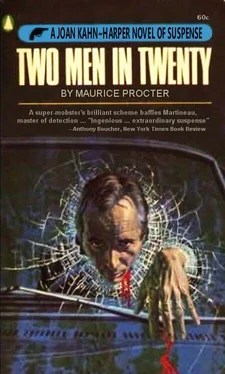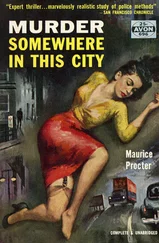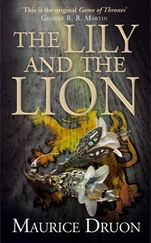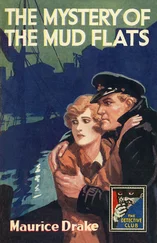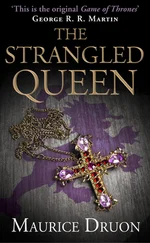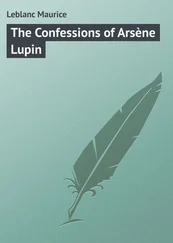Maurice Procter - Two men in twenty
Здесь есть возможность читать онлайн «Maurice Procter - Two men in twenty» весь текст электронной книги совершенно бесплатно (целиком полную версию без сокращений). В некоторых случаях можно слушать аудио, скачать через торрент в формате fb2 и присутствует краткое содержание. Год выпуска: 1963, Издательство: London : Hutchinson, Жанр: Полицейский детектив, на английском языке. Описание произведения, (предисловие) а так же отзывы посетителей доступны на портале библиотеки ЛибКат.
- Название:Two men in twenty
- Автор:
- Издательство:London : Hutchinson
- Жанр:
- Год:1963
- ISBN:нет данных
- Рейтинг книги:4 / 5. Голосов: 1
-
Избранное:Добавить в избранное
- Отзывы:
-
Ваша оценка:
- 80
- 1
- 2
- 3
- 4
- 5
Two men in twenty: краткое содержание, описание и аннотация
Предлагаем к чтению аннотацию, описание, краткое содержание или предисловие (зависит от того, что написал сам автор книги «Two men in twenty»). Если вы не нашли необходимую информацию о книге — напишите в комментариях, мы постараемся отыскать её.
Two men in twenty — читать онлайн бесплатно полную книгу (весь текст) целиком
Ниже представлен текст книги, разбитый по страницам. Система сохранения места последней прочитанной страницы, позволяет с удобством читать онлайн бесплатно книгу «Two men in twenty», без необходимости каждый раз заново искать на чём Вы остановились. Поставьте закладку, и сможете в любой момент перейти на страницу, на которой закончили чтение.
Интервал:
Закладка:
He reached the end of the passage and saw that it widened into a huge yard. He ran round the corner, and on for a few yards, then he turned and ran a-tiptoe back to the corner. He put down the carrier, and he had just enough time to wrench off his left shoe before his pursuer arrived. The man came fast, taking the corner wide, but Cain sprang to assail him from the side with the clubbed heel of the shoe. He was a big fellow, but Cain's first blow on the head made his knees buckle, and the second felled him. Cain peered round the corner. There was no other pursuer yet, but soon there would be. He forced his left foot into his laced-up shoe and went to the prostrate policeman. He needed a weapon. He found one, a solid rubber truncheon of the sort which C.I.D. men occasionally use.
Truncheon in hand, Cain peered round the corner again. No more pursuers yet. He picked up his bag of loot and looked around him. He could see nothing but factory buildings eight storeys high. There was no way out except the way he had come, but over in the far corner of the yard he discerned a faint light. A watchman? He ran in that direction.
There was no doubt that a factory of this size would have much modern equipment, but the buildings were not modern. He stopped beside a grimy, small-paned factory window with a paper blind showing light at the edges. There was a door, of solid wood with a big keyhole. He tried the door gently, and of course it was locked. He was about to knock when he saw a spot of white in the darkness. It was a bell button, in the middle of the door. He pressed the button, and faintly heard the bell ring somewhere.
While he waited he heard more running feet, a sound which rapidly grew louder. They were coming: more policemen, several of them. He rang the bell again.
'Just a minute,' a voice answered him. 'Who is it?'
'Police,' Cain replied.
'What's up?'
'You have a door open across the yard here.'
'Oh.' There was surprise. 'Just a minute.'
Cain heard the tinkle of keys on the other side of the door. 'Come on, old man,' he breathed. His new pursuers were in sight, three of them grouped beside their unconscious colleague. They would not be able to see Cain where he stood, but soon they would see the lighted window.
The key turned in the lock. At the same moment one of the newcomers detached himself from the others and came across the yard at a jog trot. The door began to open. Cain put his shoulder to it and pushed with all his strength, and the man who had opened it was forced back. Cain stepped inside, thrust with his truncheon and pushed the man further back. Then without taking his eyes from the man, he half turned and locked the door, and dropped the bunch of keys in his pocket.
He found himself in a little passage illuminated by windows from the time office which was also the night watchman's room. There was a time-punch clock on the wall and a rack of time cards. There was nothing else, not even paint. He peered through glass into the shabby little office, and saw that the watchman had been alone. He looked at the man. As he had expected in a place like this, it was an elderly man, a round, comfortable, shabby little man who was a superannuated factory hand, employed not to watch for big-time thieves, but to chase away children and smell around for fires. Nor was he a very bright old man. He had not yet realized what was happening.
'Eigh,' he protested. 'Yer said yer were a bobby.'
Cain prodded again with the truncheon, pushing the man further back, getting him away from the door. 'Well, I'm not,' he said. 'But I'm not here to do any harm. You'll be all right if you do what I tell you. If not-' He wagged the truncheon suggestively. 'Got it?'
The man was frightened, but not yet cowed. 'What yer want, then?'
'All I want is to be taken quietly through this building and let out on the other side. Lead the way, and you'll be all right. Try anything funny, and I'll addle your brains with this. Now have you got it?'
The watchman nodded. He did not intend to resist, but he sought to retain some of his self-respect. 'You won't take naught from this place?'
'Not a thing, old man.'
The doorbell rang. Cain held up the truncheon wordlessly. The watchman opened his mouth to shout, and changed his mind. 'Move,' Cain said softly. 'Lead the way.'
The man turned and walked to a door at the end of the passage. He pushed it open and there was darkness beyond. 'Light,' said Cain, close behind him. The doorbell rang again, a long peal this time.
The watchman switched on a light, and Cain saw that he was in a windowless room which appeared to be a storage place for unwrapped bales of fibre; cotton or rayon or something of the sort. When the door was closed again the bell was barely audible.
Cain followed the old man to a further door. It was locked. He handed over the keys, and the man unlocked the door. Cain turned out the light as he left the storeroom. He locked the door and kept the keys.
'Now what?' he demanded. They were at the junction of three long, wide corridors, each one lit by a single bulb.
'This way,' the man said, turning to the right.
'Where to?'
'Street.'
'And this one to the left?'
'Th' offices.'
'And this one straight ahead?'
'Nowhere. Railway sidin's.'
'There's a door?'
'Aye. It's never used now.'
'Lead on.'
They went straight ahead. At intervals on each side of the passage there were openings into great sheds with skylight windows. This part of the place had only one storey. It was an addition to the eight-storey building through which Cain had just passed, or else the taller place was a warehouse for it. It was filled with machinery about which he was incurious. He had a vague impression of white objects and shiny metal, glimmering in the faint light from the overhead windows.
At the end of the passage there was a great door on runners, secured by a padlock. In this door there was a smaller door. 'Which key?' Cain asked.
The watchman indicated the key. 'It's bolted an' all,' he said.
Cain withdrew the bolt and unlocked the door. He opened it and saw the outdoors. The watchman held out his hand for the keys.
Cain hesitated. Now was the time to stroke the old man with the truncheon, to stop him from running to the telephone. But there had been a promise of no harm. Besides, he was old, and a crack on the head might have serious consequences. Cain was human, in a way. He would keep his promise.
'You want these keys?' he asked almost genially.
'I can't get back ter me office without 'em.'
'Ah.' Cain stepped through the door. 'I'll leave the keys outside. Just outside the door. Good night.'
He removed the key to the outside of the door and locked it. He turned to look at the sidings, breathing the night air deeply. Around him he sensed decay and disuse. There was rank grass quite close to the door, and he threw the keys into this. He set off across the sidings. Here and there was rolling stock temporarily not in use. The distant lights of a road showed him that he had many acres of railway property to cross. Surely, he thought, the coppers won't have formed a ring round this lot.
When he had run a hundred yards the watchman began to hammer on the big door. His cracked shout for help was faint.
Cain laughed. He was free and he still had his bagful of loot. They wouldn't stop him now. He was the one they could not stop.
21
The extent of the sidings gave Cain an idea of his position. This spaciousness also gave him a view of some of the city's tallest buildings, in silhouette against the glow of main streets. From them he was able to work out his direction. He turned and moved at a fast walk parallel with the lines, moving from track to track at the termination of each siding. Eventually there were no sidings, and he was following the main line between high walls. He decided that if a slow goods train came along he would try to board it. If not he would follow the line. This was the line which ran through Churlham.
Читать дальшеИнтервал:
Закладка:
Похожие книги на «Two men in twenty»
Представляем Вашему вниманию похожие книги на «Two men in twenty» списком для выбора. Мы отобрали схожую по названию и смыслу литературу в надежде предоставить читателям больше вариантов отыскать новые, интересные, ещё непрочитанные произведения.
Обсуждение, отзывы о книге «Two men in twenty» и просто собственные мнения читателей. Оставьте ваши комментарии, напишите, что Вы думаете о произведении, его смысле или главных героях. Укажите что конкретно понравилось, а что нет, и почему Вы так считаете.
